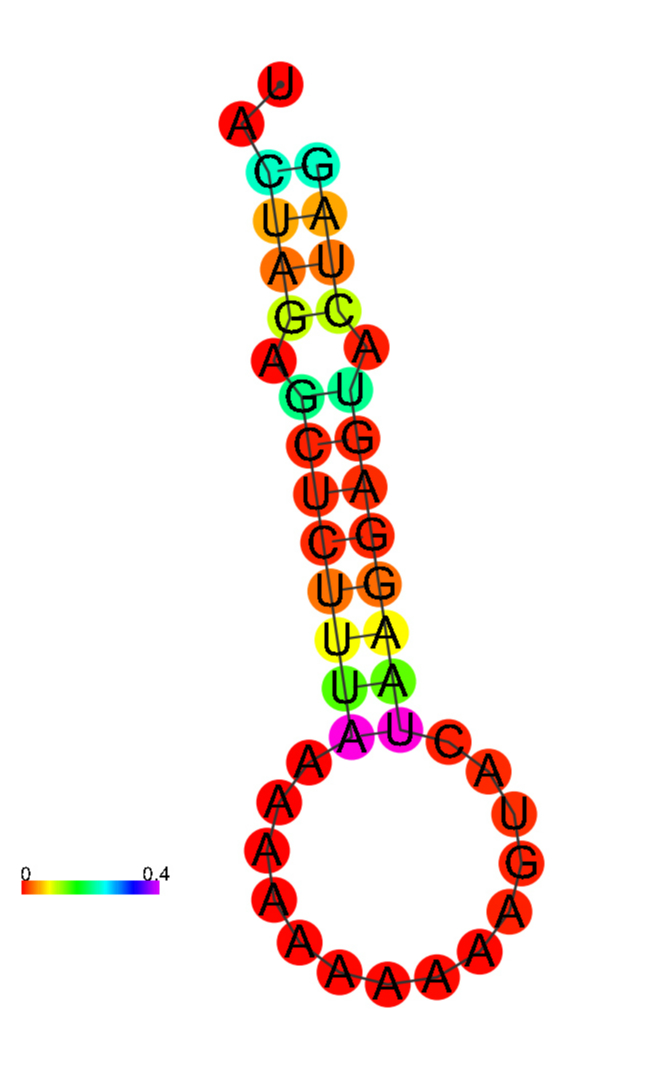Part:BBa_K1906010
Ribothermometer A1
This is a riboswitch that can respond to temperature shifts. It is believed that the melting temperature of hairpin
structures of A1 is
correlated with its temperature sensitive activity. Figure 1 illustrates the possible secondary structure of A1.
Characterization
XJTLU-CHINA 2016 iGEM team build a mutagenesis library of A1 using degenerated primers. One set of degenerated primers were designed to mutate the poly-A-loop structure of A1 in order to tight the hairpin structure and the other set of primers were designed to modify Anti-SD of the ribothermometers. The primer sequences used were:
5'-ACAGAGAACATACTAGAGNNNNNTAAAAAAAAAAAGTACTAAGGAGTACTAG-3'
5'-AGAGAACATACTAGAGCTCNNNNNNNNNNNNNNGTACTAAGGAGTACTAG-3'
The mutagenesis pool of A1 was downstream linked to an mRFP reporter gene (see Fig.2) in order to determine the protein expression efficiently. Total 96 colonies were picked after the transformation of mutagenesis library and initially screened using 96 wells plates at 26 ℃ and 37 ℃. Ten colonies with the viable difference in color were selected for further analysis.
These colonies were seeded in 150ml flasks that contain 20ml LB culture for 12 hrs. The fluorescent was then measured at an excited
length of 580nm and emitted length of 607nm. OD 600 of each sample was measured at the same time.
All 10 obtained mutants were sent for sequencing and the result is included in the table below.
| None |




